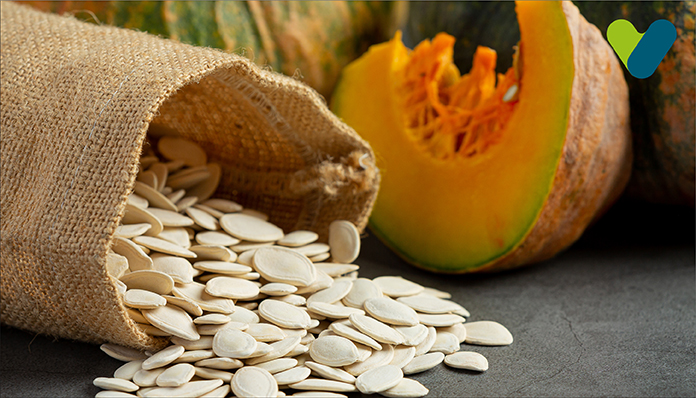A ketogenic or keto diet is one of the popular diets to lose weight. The Keto diet is a very high-fat diet with low carbohydrate intake. A Keto diet is the way to go if you want to achieve your fitness and weight goals.
In recent years, studies have suggested that a keto diet might be able to aid with some dangerous cancer types. There is also a suggestion that cancer tends to feed on the sugar you consume on a daily basis. A diet that is high in fat can drain out tumors as well. However, keto diets are still not recommended for cancer treatments and prevention.
What is a Keto Diet?
The keto diet for weight loss tends to be a diet with low carb foods and a high-fat diet at the same time that shares properties with diets such as the Atkins diet. The process of keto diet weight loss is that it reduces the intake of carbs in the body and replaces carbs with protein and fats. Consumption of protein in the proper manner is the key to any keto diet for weight loss. After following this diet plan for a week or two, the body recognizes fat as a primary source to maintain the body's energy levels. The body's metabolic system enters the state of ketosis. There is an increase of ketone in the body after being on a keto diet for some time.Effect of Keto Diet on Cancer
The cancer cells tend to feed by breaking down glucose, which in its most refined form is sugar. The keto diet for cancer can work against this as cancer cells cannot provide ketone. As mentioned earlier, ketones are the fat molecules broken by the body when someone is on a ketone diet. Research indicates that the ketone diet for cancer may boost chemotherapy and other types of cancer treatments.Ketone bodies have two possible benefits in the situation of cancer. They decrease the generation of free radicals in the first place. At the same time, they increase the body's antioxidant capacity of the body cells. Cancer cells produce new mutations, and this might be crucial for people living with cancer. Chemotherapy and targeted medications that were previously successful may become ineffective as a result of these alterations.
Research on Keto Diet for Cancer
As the studies have indicated that a keto diet may be able to help cancer treatments, more researches have shown that a keto diet can work in multiple ways to curb down cancer, such as –- Prevent weight gain after the process of chemotherapy for cancers such as breast cancer. If someone has extra weight, their chance of developing cancer cells can increase.
- Increased inflammation can cause cancer. The keto diet for cancer helps by reducing inflammation and preventing the growth of cancer cells.
- A Keto diet can help in increasing the potential of anti-cancer prescribed drugs.
- A Keto diet can slow down a person's tumor growth. As mentioned earlier, cancer cells tend to feed on sugar, and if they are reduced, their growth can be halted to some extent.
What type of cancers does the keto diet work against?
The strongest evidence of a keto diet working against cancer comes from the brain tumor known as glioblastoma, one of the most aggressive types of brain cancer. There is a lack of evidence for the keto diet working against other types of aggressive brain cancers. Research has not indicated any evidence of the keto diet working against cancers of the prostate, liver, and stomach.Other Benefits of a Keto Diet
- Weight Loss – The keto formula can be beneficial for anyone trying to lose weight as it is responsible for boosting metabolism and reducing the body's appetite in the process as well.
- Heart's Health – Keto diet with the inclusion of healthy fats can work towards reducing the cholesterol levels of the body. High cholesterol levels add to the risk of developing heart-related diseases, and the keto diet can work against this.
- Seizure Reduction – The ketosis process can help in the reduction of seizures for people who suffer from epilepsy. Keto formula might be able to benefit people who are not responding to other types of seizure treatments that well.
- Brain Functions – Studies have indicated that ketones that are generated in the keto diet can strengthen the brain's nerve cells. Conditions of Alzheimer's and other brain diseases can also be prevented if someone follows a proper keto diet.
Risks of Keto Diet for Cancer
While there might be many benefits of following a keto diet for cancer, there is still risk associated with following this diet for someone who is suffering from cancer. The core element of a keto diet is high-fat animals as food; however, red meat, which is taken in keto diets, can be harmful and can also work towards increasing the chances of developing cancer. Someone suffering from cancer needs nutritional fruits and other foods to make their recovery and treatment quick. With the keto diet, this is not possible as the food options get limited. The Keto diet is still a medical diet, and it should be handled by proper doctors and dieticians, and it's still in the experimental stages. There are other risks associated with the keto diet for cancer, such as –1. Fatigue - Keto diet for cancer may initially trigger excessive fatigue. Though, with time, this fatigue gets better.
2. Cancer Cachexia – Cancer causes unintentional weight loss. With a keto diet, more weight might be lost, which can be harmful to the body.
There are many ways the keto diet can help in cancer prevention and cancer treatments, but its effectiveness is still unknown and requires much deep study. The keto diet's basic principle is to increase the production of ketones and force someone's body to burn fat for its energy levels instead of burning down sugar.


